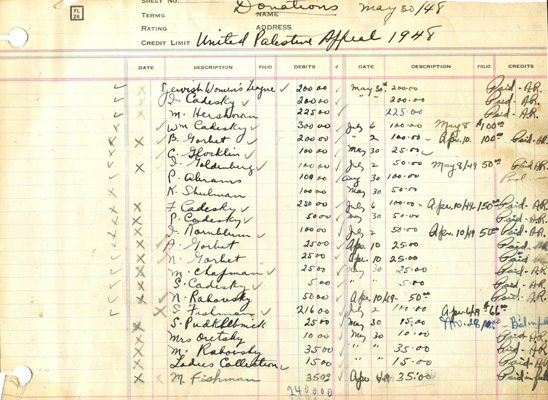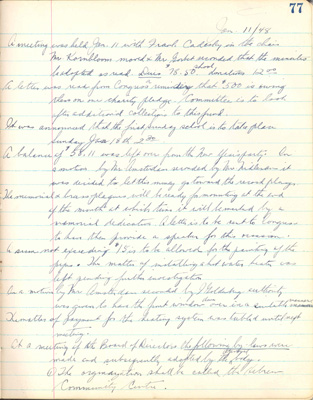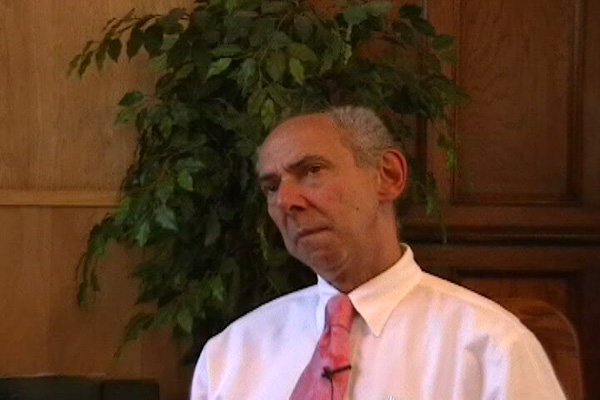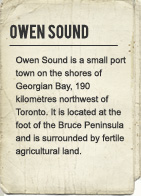Hebrew Community Club
The Owen Sound Hebrew Community Club consisted of a group of Jewish men who met weekly to play cards and enjoy “refreshments.” Fees were charged for playing, and annual fees were collected. The money helped support the Hebrew school and rabbi. The earliest minutes that survive date from January 1945. At this period, interest was split between the recreational functions of the club and the religious ones. Jewish people from the surrounding communities were also drawn to the club, and in 1950 membership was opened up to non-residents.
One of the main recreational and income-generating activities of the club was card-playing. In 1946, the fees charged were 25 cents for poker, 15 cents for pinochle and 5 cents for rummy. Presumably the fee scale related to potential winnings. Outsiders were charged double but servicemen paid the same as members. Mostly men played, but women sometimes joined in as well. They were charged a 10-cent regular recreation fee, but the charge rose to 25 cents if they played poker. The enthusiasm generated by these games is indicated by a ruling that card playing would not be permitted after 1 a.m., subject to a $1 fine. Bernie Fishman’s memory was that the shul basement would be blue with cigarette smoke when the men played cards. They would play rather seriously, with one man coming in from Wiarton, just over 30 kilometres northeast of Owen Sound, especially for this purpose. In the heat of the card-playing action, tempers would sometimes flare, but by the next day all would be fine again.
Money raised by the Men’s Club was used to maintain the synagogue and also to support Jewish causes. In 1947, $300 was sent to the United Palestine Appeal in support of the soon-to-be-established State. In the same year, $1500 was sent to the Joint Distribution Committee to help survivors of the Holocaust put their lives back together. The distinction between the synagogue and the men’s club was clear: the former dealt with religious matters and the latter did not. However, the relationship between the two was close. Most of the Club members were part of the shul. And in 1949, the club and synagogue treasuries were combined.
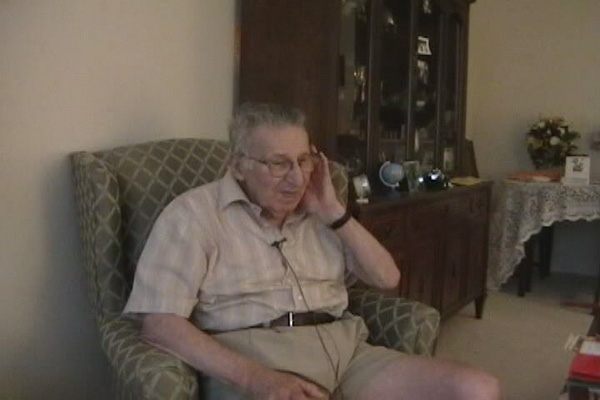
Playing Poker
Mike Rabovsky reminisces about the men of the community socializing with each other over a game of poker above the Synagogue.
Interview with Mike Rabovsky, 13 June 2007, Sharon Gubbay Helfer, OJA, Oral History #296

